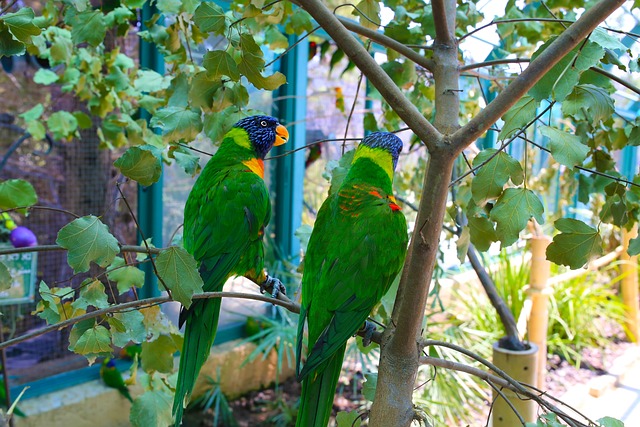In the intricate dance of avian life, understanding the subtle cues of joy and well-being is essential. Equally important is recognizing the warning signs that a feathered friend may be facing challenges. Join us in this guide as we unravel the symphony of signals that convey a happy and healthy bird, while also shedding light on potential indicators of discontent or ill health.
Radiant Plumage: A Palette of Happiness
- Vibrant Colors:
- Healthy birds boast vibrant, well-maintained feathers. A dull appearance, ruffled feathers, or signs of molting outside of the regular season can indicate health issues.
- Feather Plucking:
- Watch for excessive feather plucking, a behavior that may suggest stress, boredom, or underlying health concerns.
Expressive Behavior: Chirps, Chirrups, and Silence
- Joyful Vocalizations:
- Cheerful chirps and melodic tunes are positive signs. Conversely, prolonged silence or changes in vocal patterns might be an indication of distress.
- Aggressive Behavior:
- Excessive aggression, biting, or territorial behavior can signal stress or discomfort in your bird.
Appetite and Hydration: Gauging Wellness
- Eager Eating:
- A healthy appetite is positive. Conversely, a sudden loss of interest in food or changes in eating habits can indicate underlying health issues.
- Excessive Drinking or Lack Thereof:
- Monitor water intake. Increased or decreased drinking may be a sign of health problems, such as kidney issues or dehydration.
Social Engagement: Bonds Beyond the Cage
- Seeking Interaction:
- Eager interaction is a good sign. Withdrawal, fearfulness, or avoidance of interaction may be a red flag.
- Excessive Agitation:
- Constant agitation, pacing, or restlessness might indicate stress or discomfort.
Comfortable Body Language: A Picture of Ease
- Relaxed Posture:
- A relaxed posture is positive. On the flip side, huddled or fluffed-up behavior may suggest illness or discomfort.
- Favoring One Leg:
- If your bird consistently avoids using one leg or appears unsteady, it could be a sign of injury or illness.
Curiosity and Exploration: An Inquisitive Spirit
- Active Exploration:
- Curiosity is a positive sign. A sudden lack of interest in surroundings or avoidance of toys may indicate boredom or illness.
- Lethargy:
- If your bird shows prolonged periods of inactivity, lethargy, or a general lack of energy, consult a vet for potential health issues.
